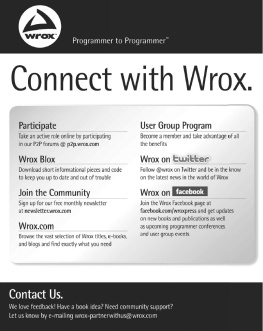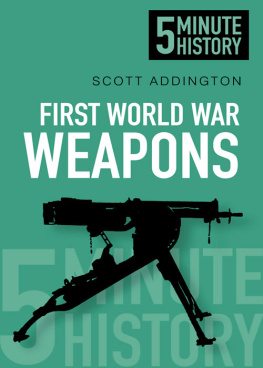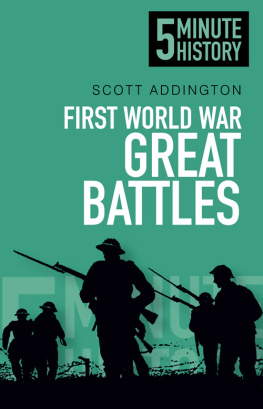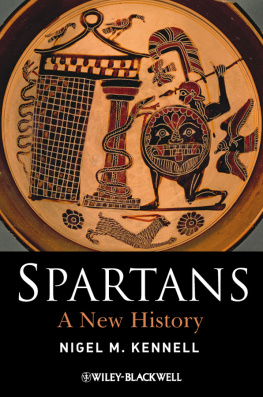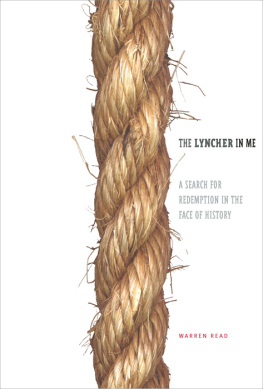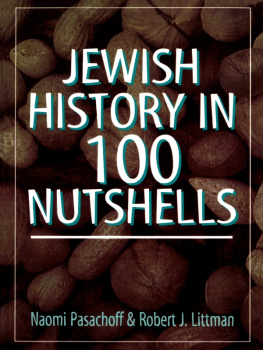Poe - How to Read a History Book
Here you can read online Poe - How to Read a History Book full text of the book (entire story) in english for free. Download pdf and epub, get meaning, cover and reviews about this ebook. City: Winchester;UK, year: 2018, publisher: Zero Books, genre: Art. Description of the work, (preface) as well as reviews are available. Best literature library LitArk.com created for fans of good reading and offers a wide selection of genres:
Romance novel
Science fiction
Adventure
Detective
Science
History
Home and family
Prose
Art
Politics
Computer
Non-fiction
Religion
Business
Children
Humor
Choose a favorite category and find really read worthwhile books. Enjoy immersion in the world of imagination, feel the emotions of the characters or learn something new for yourself, make an fascinating discovery.

- Book:How to Read a History Book
- Author:
- Publisher:Zero Books
- Genre:
- Year:2018
- City:Winchester;UK
- Rating:4 / 5
- Favourites:Add to favourites
- Your mark:
- 80
- 1
- 2
- 3
- 4
- 5
How to Read a History Book: summary, description and annotation
We offer to read an annotation, description, summary or preface (depends on what the author of the book "How to Read a History Book" wrote himself). If you haven't found the necessary information about the book — write in the comments, we will try to find it.
Poe: author's other books
Who wrote How to Read a History Book? Find out the surname, the name of the author of the book and a list of all author's works by series.
How to Read a History Book — read online for free the complete book (whole text) full work
Below is the text of the book, divided by pages. System saving the place of the last page read, allows you to conveniently read the book "How to Read a History Book" online for free, without having to search again every time where you left off. Put a bookmark, and you can go to the page where you finished reading at any time.
Font size:
Interval:
Bookmark:

First published by Zero Books, 2018
Zero Books is an imprint of John Hunt Publishing Ltd., Laurel House, Station Approach,
Alresford, Hants, SO24 9JH, UK
office1@jhpbooks.net
www.johnhuntpublishing.com
www.zero-books.net
For distributor details and how to order please visit the Ordering section on our website.
Text copyright: Marshall T. Poe 2017
ISBN: 978 1 78099 729 2
978 1 78535 646 9 (ebook)
Library of Congress Control Number: 2016962870
All rights reserved. Except for brief quotations in critical articles or reviews, no part of this book may be reproduced in any manner without prior written permission from the publishers.
The rights of Marshall T. Poe as author have been asserted in accordance with the Copyright, Designs and Patents Act 1988.
A CIP catalogue record for this book is available from the British Library.
Design: Stuart Davies
Printed and bound by CPI Group (UK) Ltd, Croydon, CR0 4YY, UK
We operate a distinctive and ethical publishing philosophy in all areas of our business, from our global network of authors to production and worldwide distribution.
This book is dedicated to Professor Don Smith of Grinnell College, who taught me by example that a little humor goes a long way in most serious discussions.
This is not a book about history. Rather, its a book about history books. You might well ask, Why would I want to read a book about history books? Thats a fair question. If you dont read history books, theres no reason at all. You can put this book down right now and save yourself some time and money. Ill get over it. But if you do read history books, then let me explain why you should read it.
Ive been reading, writing, and talking with people about history for a quarter of a century. By and large, the people Ive encountered have a pretty good grasp of what history is and what a history book is. The former is the past and the latter is a true story about the past. These two plainspoken, intuitive, commonsensical definitions of history drive over-thinkers absolutely nuts. History, they often object, cant be that simple. To prove that its not, over-thinkers write long books called things like Microhistory, Macrohistory, Metahistory, Hyperhistory, Quantumhistory and so on. Now these books, though hard to read, are interesting if you are excited by parsing, arranging, and rearranging words. I confess I am enthused by these things, but thats because most of my friends are over-thinkers and thats the way over-thinkers roll. But I can tell you with considerable assurance that these books, individually or as a bunch, do no damage whatsoever to the plainspoken, intuitive, commonsensical idea that history is the past and a history is a true story about the past. You neednt take my word for it; you can just wade into these books and find out for yourself. Honestly, and with no disrespect to my colleagues, I would not recommend this option unless you happen to be unemployed or a graduate student. Instead, you could just think for a moment about every history book you have ever read. What was it about? The past. What form did it take? A story. There you have it: as good an inductive proof as one could ever want.
So people already know what history is whether they know they know or not (or, I should add, whether they have been convinced by over-thinkers that they dont know). Thats not the problem. The problem is that most folks who read history books dont really have a firm grasp of what a history book is. I can hear you saying: Of course I know what a history book is, you pretentious dolt. Its a book about history. True enough. Thats a good definition of a history book. But if thats all you knew about what a history book is, thenand heres the punch lineyou would not fully comprehend the true story contained in a history book. Everyone knows you should not judge a book by its cover. Fewer people realize that you should not judge a book by its contents, where contents means a set of words united into sentences placed one after another on a physical or electronic page. The Reverend Martin Luther King said, famously, that we should judge people not by the color of their skin but rather by the content of their character. The first part works for books; the last part doesnt. The measure of a book is not just what it says, but how it says it.
Its this partthe howthat is the problem. Most history readers never consider the how when they sit down to read about, say, Reverend Martin Luther King. Its hard to blame them for this neglect. After all, the interesting part of a history book is first and foremost the story it tells, not the ink and paper, bindings and pages, sentences and paragraphs, chapters and sections, footnotes and bibliographies. These things are media, not messages, and most history readers are rightly interested in messages. Yet we all knowor should know by nowthat media themselves have messages built into them (and I dont mean when you play them backwards). These messages are often hidden, and almost always subtle, but they are there nonetheless. A simple example from the history of books demonstrates this verity. The Gospels were popular books in medieval Europe, as they are today in modern Europe. In terms of contents, the Gospels are the GospelsMatthew, Mark, Luke, and John (allowing, of course, for some textual variation). But in terms of media, the medieval and modern versions are very different; each has its own story to tell. The medieval version was likely handwritten in Latin on something like velum by clergymen for other clergymen. The modern version was probably printed in some vernacular language like Russian on paper for purchase by consumers. The way a book is produced, the form it takes, and the way it is distributed all tell us something about whats inside and the society that produces it.
It follows that if you want to have a complete understanding of the content carried in a medium, you also have to understand something about the medium itself. To grasp whats inside a history book, you have to understand how history books are written, what form they take, and the way they are distributed among other things. In sum, to comprehend historythe past and stories about the pastyou must comprehend the artifact history book. And that is why you may want to read a book about history books.
The purpose of this book, then, is to give the reader some understanding of what a history book is in a kind of anthropological sense. We want to know about how our tribe (so to speak) began writing history books and when; about which tribe members write history books now and how; about the kinds of history books the tribes history-writers write and for whom; about what form the tribes history books take; about the tribes history publishers, what they publish, and for whom; and, finally, about how the tribe uses the history books after they are published. Doubtless other questions will arise as we proceed, but this is a good start.
As I said at the onset, this book is not a history. I have no intention of telling you a true story about the past; rather, I want to tell you the whole truth about history books. If I stuck to the facts as a historian might, I could not accomplish that goal, at least in a very entertaining way. If, however, I allow myself a certain poetic license, I think I can get the job done and keep you, gentle reader, from turning on the TV. I have, therefore, opted to tell the whole truth about history books via a historical fiction. The setting of this fiction is, well, historical: our world, past and present, and more particularly the contemporary United States. Though I made nothing up about this setting, I will confess altering some names to avoid offence and nitpicking about what actually happened. Ive not changed the names very much, so I imagine most clever readers will easily guess who or what Im actually talking about. The fiction I have put in this settingthat of Elizabeth Rankeis, well, fictional: there is no Elizabeth Ranke, never was and never will be. She is not, however, exactly fictional. Rather, she is a composite based on my observation of people in the historical profession. Who she is and what she does, as they say in the movies, are based on actual events. She is typical, though she is not actual.
Font size:
Interval:
Bookmark:
Similar books «How to Read a History Book»
Look at similar books to How to Read a History Book. We have selected literature similar in name and meaning in the hope of providing readers with more options to find new, interesting, not yet read works.
Discussion, reviews of the book How to Read a History Book and just readers' own opinions. Leave your comments, write what you think about the work, its meaning or the main characters. Specify what exactly you liked and what you didn't like, and why you think so.

